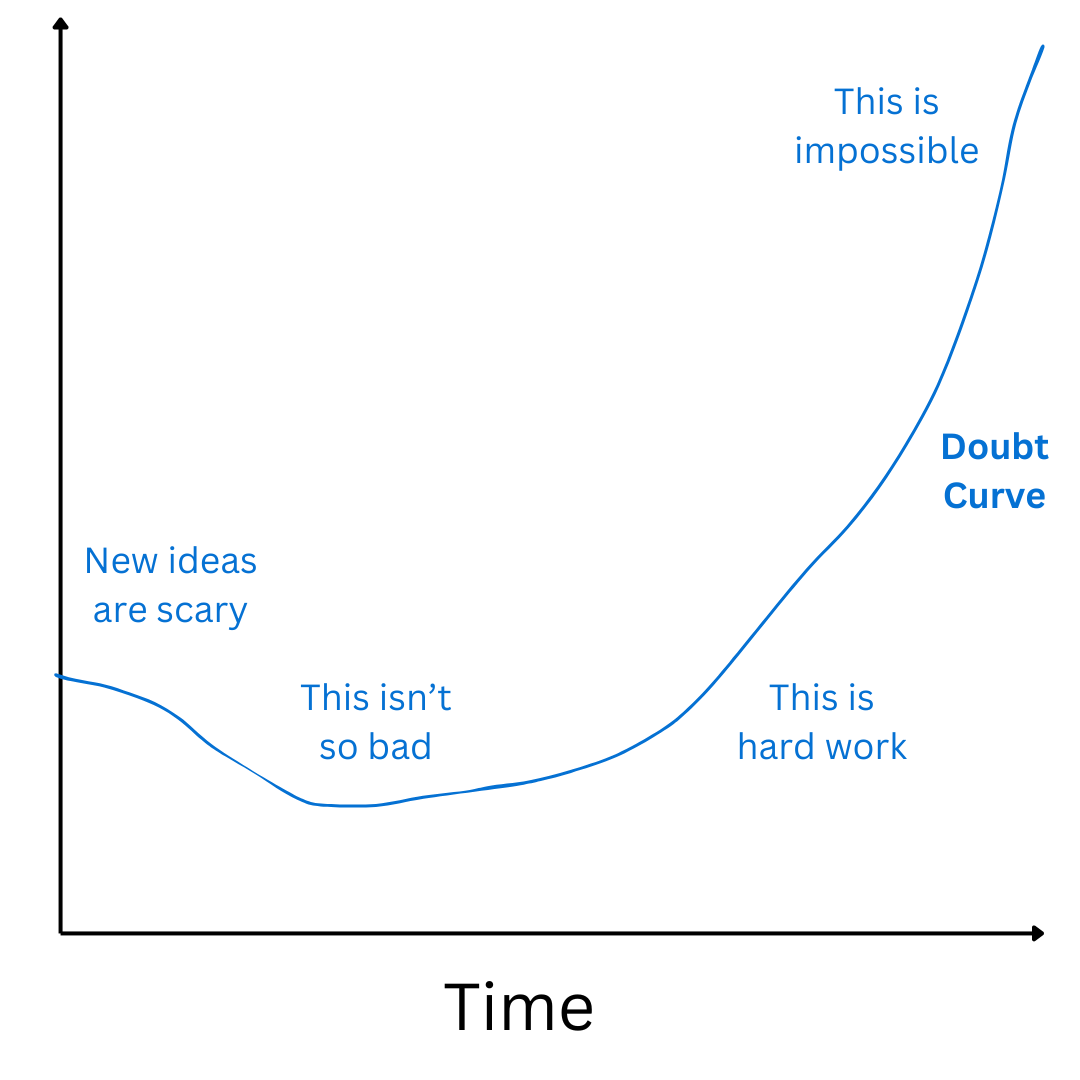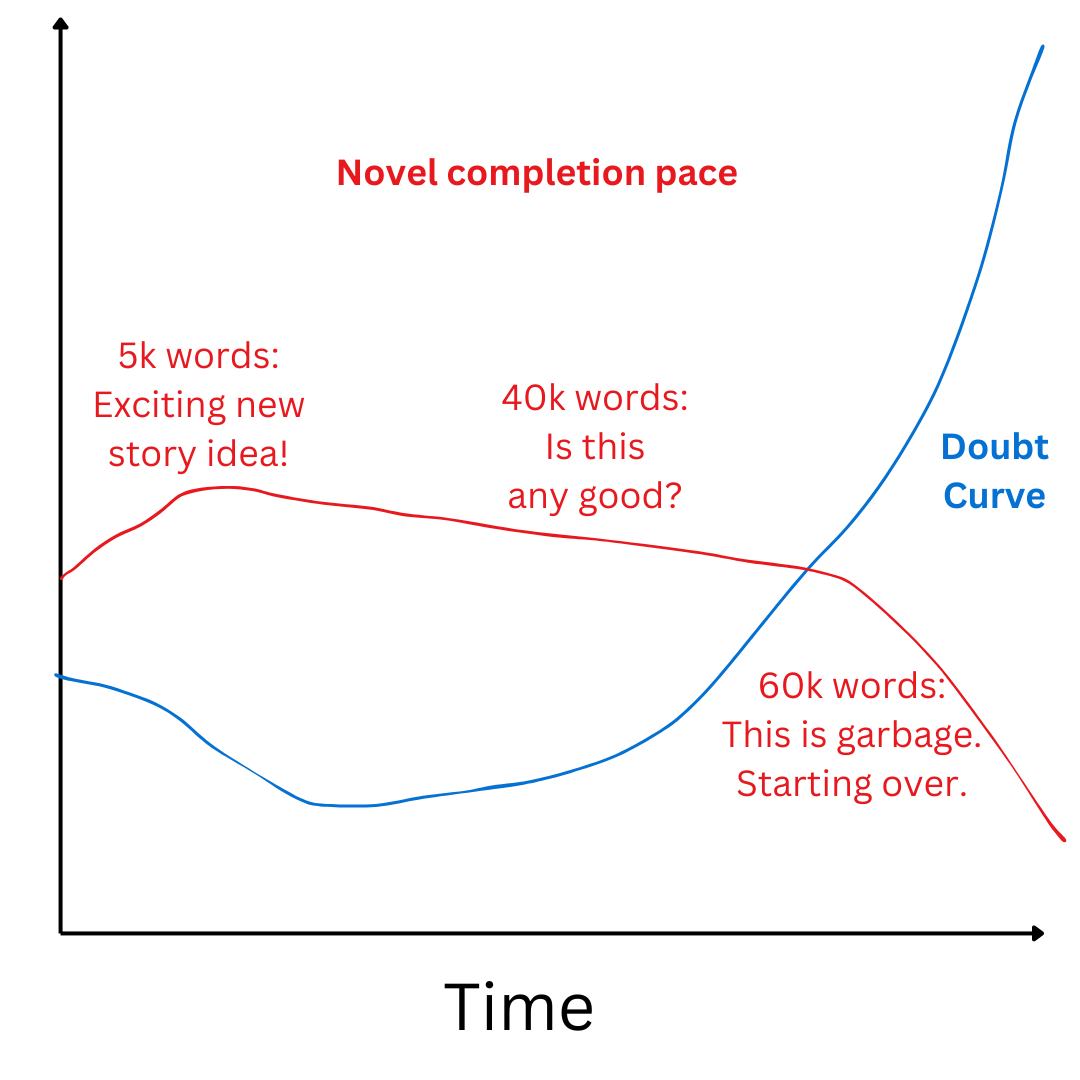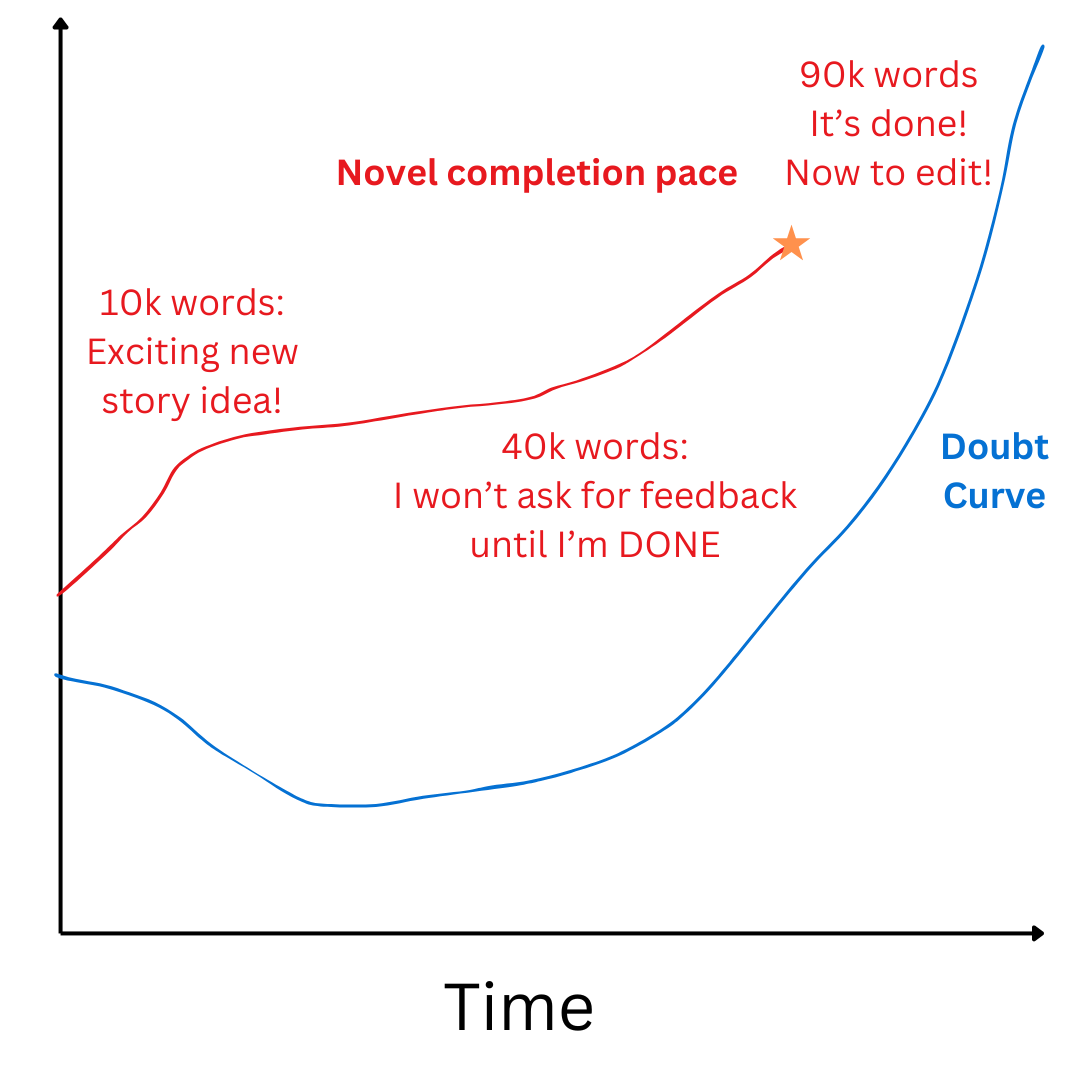When in doubt, write it out
Or, why "Just do it" works for more than sports.
My first novel, Driving by Starlight, took me at least 2 years to write the first draft through to the end. My latest novel, the one provisionally called AoB, took me < 30 days. The difference was one of mindset, and it is one that has completely transformed not only my writing life but my work as well.
To explain what happened, I’m going to show some graphs. These are “exec graphs” which means that any STEM folks are going to wail and gnash their teeth at the lack of precision.
Graph 1: The Doubt Curve
When faced with a new idea, a change in circumstances, or a shift in strategy from a boss, we go through the doubt curve. The earliest example of someone going through the doubt curve is Orpheus, who tried to climb out of hell, with the only constraint being that he should never doubt that Eurydice was following him. We all know how that ended. If you don’t, watch Hadestown.
Graph 2: The pace of writing a novel
A new novel (or any new task) always begins with a lot of enthusiasm and momentum. When learning a new skill, a combination of beginner’s luck and our own attention lead to a few quick wins. Then doubt starts to creep in. We ask for feedback, look around ourselves to compare, and slow down (hello, Orpheus). At some point, we directly hit the exponentially growing doubt curve and give up entirely or decide to start over.
Graph 3: Write as if everyone you know is dead
What if, when we inevitably slow down from the initial enthusiasm, instead of looking for feedback and validation that going on is “worth it,” we… kept going? As I mentioned in a prior post, imagination is about trusting ourselves to find our way in the dark, accepting fully that it will be different and slower than doing so in the light. This means that even if we’re not making progress as fast as we were in the beginning, we take the story idea through to the end, and we do it fast—before we hit the Doubt Curve.
All too often, we hold ourselves back, and feed the part of our minds that thrives on doubt. We want to be told that our efforts aren’t going to be wasted, but the more time we spend, the more it will hurt when those efforts don’t pan out the way we hope. But if we spend less time, we won’t be weighed down as much by sunk cost. We might be willing to say, “Well, I learned something from that, and it only took a month. Now, I can work on something else and not make the same mistakes.”
All too often we want assurances of success before we invest effort. But success isn’t guaranteed, and doesn’t always look the way we think it will. All we ever have control over is the effort we choose to put in.
My former agent wrote in her Substack that she was planning to write another book:
Why? Because I want to. Because I love it. Because I’m not getting any younger. Because tomorrow isn’t promised. Because, if all goes according to plan, it might make another person smile one day, and that is enough. Because it will make me smile to create something and that is worthwhile even if no one ever reads it.
It’s pretty compelling. Maybe I’ll write another two.



